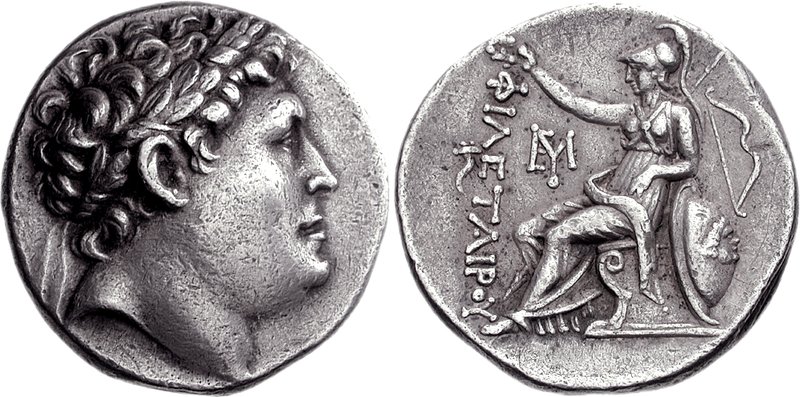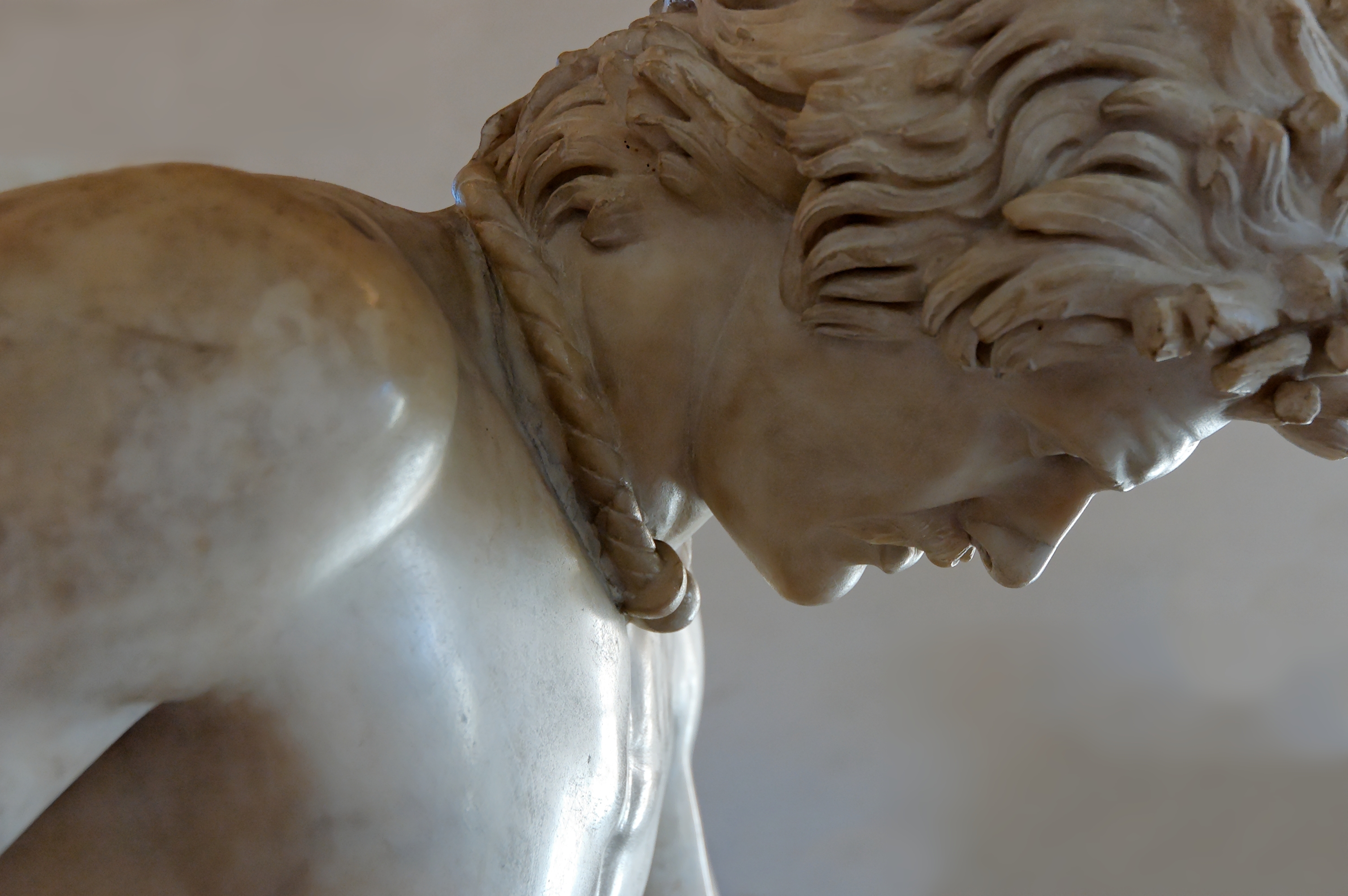|
Carseae
Carseae or Karseai ( grc, Κάρσεαι), or Careseae or Kareseai (Καρησέαι), also known as Karseis or Kerasai or Kerateis, was a town of ancient Mysia or of ancient Lydia, Lydia, cited by Polybius. King Attalus I, with some Galatians (people), Galatae, made an incursion against this place, and he reached them after crossing the Lycus (river of Mysia), Lycus River; afterward he attacked Didymateiche. There is some probability that the place which is meant is the Caresus of Strabo; and there is nothing in the narrative of Polybius that is inconsistent with this supposition. This Lycus River is unknown. Its site is unlocated. References Populated places in ancient Lydia Populated places in ancient Mysia Former populated places in Turkey Lost ancient cities and towns {{AncientLydia-geo-stub ... [...More Info...] [...Related Items...] OR: [Wikipedia] [Google] [Baidu] |
Didymateiche
Didymateiche ( grc, Δίδυμα τείχη), or Didymon Teichos ( grc, Δίδυμον Τεῖχος, 'twin walled'), was a town of ancient Mysia. It belonged to the Delian League since it appears in tribute records of ancient Athens, Athens between the years 454/3 and 418/7 BCE. Polybius writes that it was among the places that were conquered by Attalus I, after the city of Carseae. Its site is located north of Biga / Çanakkale, Turkey], Anatolia, Asiatic Turkey. References Populated places in ancient Mysia Former populated places in Turkey Greek city-states Members of the Delian League History of Çanakkale Province {{AncientMysia-geo-stub ... [...More Info...] [...Related Items...] OR: [Wikipedia] [Google] [Baidu] |
Lycus (river Of Mysia)
Lycus (Lykos, Lycos ,) may refer to: Mythology * Lycus (mythology), the name of numerous people in Greek mythology, including ** Lycus (brother of Nycteus), a ruler of the ancient city of Ancient Thebes ** Lycus (descendant of Lycus), son of Lycus (brother of Nycteus), appearing in Euripides's ''Heracles'' ** Lycus, son of Poseidon Rivers * Lycos or Great Zab, a river of Assyria, located in modern-day Turkey and Iraq * Lycus (river of Bithynia), flows into the Black Sea (Pontus Euxinus) near Heraclea Pontica * Lycus (river of Cilicia), flows from the Pyramus to the Pinarus * Lycus, now known as Kouris, in Cyprus that flows into the Mediterranean Sea at Kourion * Lycus (river of Lydia), a tributary of the Hyllus river * Lycus (river of Mysia), near Carseae * Lycus (river of Phoenicia), also known as Nahr al-Kalb, flows into the Mediterranean near Beirut * Lycus (river of Phrygia), a historical river, a tributary of the Maeander * Lycus (river of Pontus), modern Kelkit, a ri ... [...More Info...] [...Related Items...] OR: [Wikipedia] [Google] [Baidu] |
Ancient Mysia
Mysia (UK , US or ; el, Μυσία; lat, Mysia; tr, Misya) was a region in the northwest of ancient Asia Minor ( Anatolia, Asian part of modern Turkey). It was located on the south coast of the Sea of Marmara. It was bounded by Bithynia on the east, Phrygia on the southeast, Lydia on the south, Aeolis on the southwest, Troad on the west, and the Propontis on the north. In ancient times it was inhabited by the Mysians, Phrygians, Aeolian Greeks and other groups. Geography The precise limits of Mysia are difficult to assign. The Phrygian frontier was fluctuating, while in the northwest the Troad was only sometimes included in Mysia. The northern portion was known as "Lesser Phrygia" or ( grc, μικρὰ Φρυγία, mikra Phrygia; la, Phrygia Minor), while the southern was called "Greater Phrygia" or "Pergamene Phrygia". Mysia was in later times also known as Hellespontine Phrygia ( grc, Ἑλλησποντιακὴ Φρυγία, Hellespontiake Phrygia; la, Phryc ... [...More Info...] [...Related Items...] OR: [Wikipedia] [Google] [Baidu] |
Ancient Lydia
Lydia ( Lydian: 𐤮𐤱𐤠𐤭𐤣𐤠, ''Śfarda''; Aramaic: ''Lydia''; el, Λυδία, ''Lȳdíā''; tr, Lidya) was an Iron Age kingdom of western Asia Minor located generally east of ancient Ionia in the modern western Turkish provinces of Uşak, Manisa and inland Izmir. The ethnic group inhabiting this kingdom are known as the Lydians, and their language, known as Lydian, was a member of the Anatolian branch of the Indo-European language family. The capital of Lydia was Sardis.Rhodes, P.J. ''A History of the Classical Greek World 478–323 BC''. 2nd edition. Chichester: Wiley-Blackwell, 2010, p. 6. The Kingdom of Lydia existed from about 1200 BC to 546 BC. At its greatest extent, during the 7th century BC, it covered all of western Anatolia. In 546 BC, it became a province of the Achaemenid Persian Empire, known as the satrapy of Lydia or ''Sparda'' in Old Persian. In 133 BC, it became part of the Roman province of Asia. Lydian coins, made of silver, are amo ... [...More Info...] [...Related Items...] OR: [Wikipedia] [Google] [Baidu] |
Polybius
Polybius (; grc-gre, Πολύβιος, ; ) was a Greek historian of the Hellenistic period. He is noted for his work , which covered the period of 264–146 BC and the Punic Wars in detail. Polybius is important for his analysis of the mixed constitution or the separation of powers in government, his in-depth discussion of checks and balances to limit power, and his introduction of "the people", which influenced Montesquieu's '' The Spirit of the Laws'', John Locke's ''Two Treatises of Government'', and the framers of the United States Constitution. The leading expert on Polybius for nearly a century was F. W. Walbank (1909–2008), who published studies related to him for 50 years, including a long commentary of his ''Histories'' and a biography. Early life Polybius was born around 200 BC in Megalopolis, Arcadia, when it was an active member of the Achaean League. The town was revived, along with other Achaean states, a century before he was born. Polybius' father, L ... [...More Info...] [...Related Items...] OR: [Wikipedia] [Google] [Baidu] |
Attalus I
Attalus I ( grc, Ἄτταλος Α΄), surnamed ''Soter'' ( el, , "Savior"; 269–197 BC) ruled Pergamon, an Ionian Greek polis (what is now Bergama, Turkey), first as dynast, later as king, from 241 BC to 197 BC. He was the first cousin once removed and the adopted son of Eumenes I, whom he succeeded, and was the first of the Attalid dynasty to assume the title of king in 238 BC. He was the son of Attalus and his wife Antiochis. Attalus won an important victory over the Galatians, newly arrived Celtic tribes from Thrace, who had been, for more than a generation, plundering and exacting tribute throughout most of Asia Minor without any serious check. This victory, celebrated by the triumphal monument at Pergamon (famous for its ''Dying Gaul'') and the liberation from the Gallic "terror" which it represented, earned for Attalus the name of "Soter", and the title of "king". A courageous and capable general and loyal ally of Rome, he played a significant role in ... [...More Info...] [...Related Items...] OR: [Wikipedia] [Google] [Baidu] |
Galatians (people)
The Galatians ( grc, Γαλάται, Galátai}; la, Galatae, Galati, Gallograeci; el, Γαλάτες, translit=Galátes, lit=Gauls) were a Celtic people dwelling in Galatia, a region of central Anatolia surrounding present-day Ankara, during the Hellenistic period. They spoke the Galatian language, which was closely related to Gaulish, a contemporary Celtic language spoken in Gaul. The Galatians were descended from Celts who had invaded Greece in the 3rd century BC. The original settlers of Galatia came through Thrace under the leadership of Leogarios and Leonnorios c. 278 BC. They consisted mainly of three gaulish tribes, the Tectosages, the Trocmii, and the Tolistobogii, but there were also other minor tribes. In 25 BC, Galatia became a province of the Roman Empire, with Ankara (''Ancyra'') as its capital. In the 1st century AD, many Galatians were Christianized by Paul the Apostle's missionary activities. The '' Epistle to the Galatians'' by Paul the Apostle i ... [...More Info...] [...Related Items...] OR: [Wikipedia] [Google] [Baidu] |
Caresus
Caresus or Karesos ( grc, Κάρησος) was a town of the ancient Troad The Troad ( or ; el, Τρωάδα, ''Troáda'') or Troas (; grc, Τρῳάς, ''Trōiás'' or , ''Trōïás'') is a historical region in northwestern Anatolia. It corresponds with the Biga Peninsula ( Turkish: ''Biga Yarımadası'') in the Ç ..., on a river of the same name, in a mountainous tract called the Caresene. It was ruined before Strabo's time. Its site is unlocated. References Populated places in ancient Troad Former populated places in Turkey {{AncientTroad-geo-stub ... [...More Info...] [...Related Items...] OR: [Wikipedia] [Google] [Baidu] |
Strabo
Strabo''Strabo'' (meaning "squinty", as in strabismus) was a term employed by the Romans for anyone whose eyes were distorted or deformed. The father of Pompey was called " Pompeius Strabo". A native of Sicily so clear-sighted that he could see things at great distance as if they were nearby was also called "Strabo". (; el, Στράβων ''Strábōn''; 64 or 63 BC 24 AD) was a Greek geographer, philosopher, and historian who lived in Asia Minor during the transitional period of the Roman Republic into the Roman Empire. Life Strabo was born to an affluent family from Amaseia in Pontus (in present-day Turkey) in around 64BC. His family had been involved in politics since at least the reign of Mithridates V. Strabo was related to Dorylaeus on his mother's side. Several other family members, including his paternal grandfather had served Mithridates VI during the Mithridatic Wars. As the war drew to a close, Strabo's grandfather had turned several Pontic ... [...More Info...] [...Related Items...] OR: [Wikipedia] [Google] [Baidu] |
Populated Places In Ancient Lydia
Population typically refers to the number of people in a single area, whether it be a city or town, region, country, continent, or the world. Governments typically quantify the size of the resident population within their jurisdiction using a census, a process of collecting, analysing, compiling, and publishing data regarding a population. Perspectives of various disciplines Social sciences In sociology and population geography, population refers to a group of human beings with some predefined criterion in common, such as location, race, ethnicity, nationality, or religion. Demography is a social science which entails the statistical study of populations. Ecology In ecology, a population is a group of organisms of the same species who inhabit the same particular geographical area and are capable of interbreeding. The area of a sexual population is the area where inter-breeding is possible between any pair within the area and more probable than cross-breeding with ... [...More Info...] [...Related Items...] OR: [Wikipedia] [Google] [Baidu] |
Former Populated Places In Turkey
A former is an object, such as a template, gauge or cutting die, which is used to form something such as a boat's hull. Typically, a former gives shape to a structure that may have complex curvature. A former may become an integral part of the finished structure, as in an aircraft fuselage, or it may be removable, being using in the construction process and then discarded or re-used. Aircraft formers Formers are used in the construction of aircraft fuselage, of which a typical fuselage has a series from the nose to the empennage, typically perpendicular to the longitudinal axis of the aircraft. The primary purpose of formers is to establish the shape of the fuselage and reduce the column length of stringers to prevent instability. Formers are typically attached to longerons, which support the skin of the aircraft. The "former-and-longeron" technique (also called stations and stringers) was adopted from boat construction, and was typical of light aircraft built until th ... [...More Info...] [...Related Items...] OR: [Wikipedia] [Google] [Baidu] |
.jpg)





